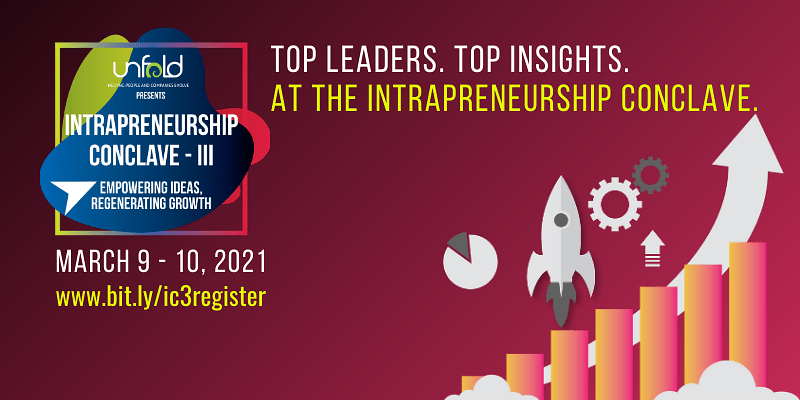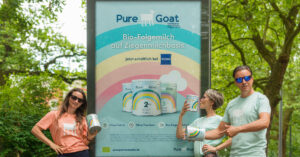As media partner for the upcoming annual Intrapreneurship Conclave, YS’s third preview article shares stories and success tips for enterprise innovation practices. See Part I and Part II, as well as our writeup on the 2019 edition and 15-part article series on the CII Global Knowledge Summit.
The two-day virtual event features 12 sessions and 22 speakers who represent 19 companies. In this article, we share insights form Shruti Shibulal, CEO and Director of Tamara Leisure Experiences; Rishi Kapoor, CIO, MetLife Global Operations – Shared Services; and Apoorva Bapna, Chief Culture Officer, WPP India.
Some of the other conference speakers are from Tata Sons, NITI Aayog, Morgan Stanley, Schneider Electric, Manipal Health Enterprises, Cisco, MapMyGenome, GroupM, Xoxoday, and the Indian Music Experience.

I. Motivation and morale
The pandemic posed serious challenges for companies on how to survive, revive, and even thrive in the face of crisis.
“It was very important for us to let the team know how committed we are to them and how essential they would be in helping us tide this crisis,” explains Shruti Shibulal, CEO and Director of Tamara Leisure Experiences, in a chat with YS. The hospitality group focuses on harmonising profitable ventures with people-centric and planet-forward practices.
“We did not lay off anyone. We applied nominal salary cuts for the top three percent of the organisation, and the rest of the organisation remained unaffected,” adds Shruti, who is passionate about human capital building as well as environmental conservation.
“We also quickly understood our staff would need engaging material to endure an isolating and uncertain time. We made it a priority to really invest in our people,” she says. The robust L&D department created interactive and constructive training sessions.
“In total, we provided hundreds of hours of training to our staff including cross-departmental training. Once we were able to, we moved people around to different units where they could see how COVID-19 protocols were being implemented in case-specific ways,” Shruti explains.
The company also made mental health support available to employees at this time. “We worked with non- profits from around the country to offer one-on-one counselling sessions that addressed how to manage mental well-being and how to stay engaged in productive ways,” she recalls.
The pandemic was an unprecedented event, recalls Rishi Kapoor, CIO, MetLife Global Operations – Shared Services. “We flattened the organisational layers and empowered employees to take speedy decisions,” he adds.
Employees rallied together as the pandemic unfolded, and showed initiative in walking the extra mile. “Though many employees were working remotely, 100 percent work from home (WFH) was not contemplated earlier,” Rishi explains.
“We sent out a clear message to everyone that You are taken care of,” he says. This ranged from providing WiFi dongles to compassionate understanding of the domestic issues that employees faced while working from home, such as looking after elders and children.
“21st March 2020 was the day we moved to remote working ahead of the national lockdown. This meant 80 plus offices with 8,000 employees across India were required to work from home,” recalls Apoorva Bapna, Chief Culture Officer, WPP India.
The initial few weeks were tough and challenging at the same time. “Tough because we needed to ensure employees had the required infrastructure support, studios had to move to their homes, and in some cases furniture and of course IT support was a necessity,” Apoorva adds.
“It was challenging because people were not used to WFH for more than a day or two but this seemed like the long haul, giving them time with their families. Of course, in the initial few weeks, the pandemic was still a mystery that remained to be unravelled,” Apoorva says.
Over time, motivation and connectedness became key. “As weeks passed by, it was imperative to keep our people’s focus intact and in fact, to over-communicate with our people to ensure they feel connected and remain motivated,” Apoorva explains.
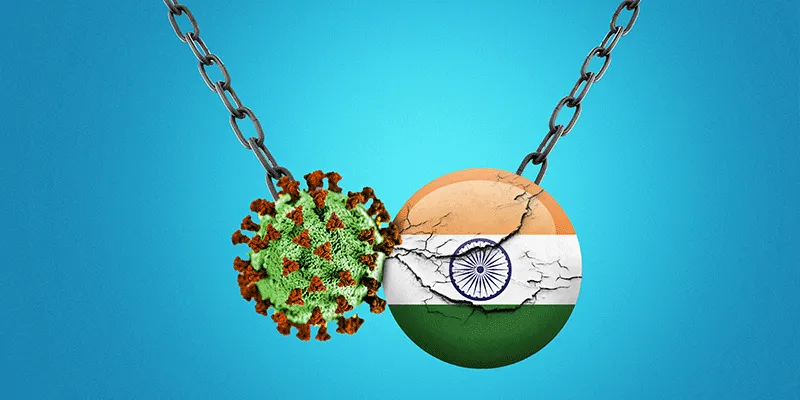
“Our endeavour was to build a virtual work culture and we took up various initiatives to ensure we engage with our employees,” she adds. This included upskilling, inspiration, mental health, and collaborative communities.
For upskilling, WPP leveraged its internal and external partner ecosystem to deliver training sessions and content to help colleagues do their jobs effectively and embrace new emerging areas. These included AI, data, commerce, marketing automation, and customer experience.
Inspiration was a key priority as well. “Times like these are tough, and therefore it’s imperative that we continue to provide inspiration to our people so they look forward to the future and deal with the challenges effectively,” Apoorva emphasises.
The company ran a series called Lessons from Leaders where industry honchos addressed people about the future of economy, emerging trends, and looking at the positives of pandemic times.
COVID-19 not only impacted the physical well-being of many, but also caused a lot of mental stigma, emotional distress, and a sense of fear. “We wanted to create a safe environment for our people so they felt protected, heard, and cared for. We ran multiple workshops and safe-room discussions, and promoted our Employee Assistance Program so people could reach out and seek help,” Apoorva explains.
WPP also created communities to drive collaboration across a diverse spectrum of topics. This helped promote diversity of thought and inclusion, and gave people a platform where they could share their passion and purpose, according to Apoorva.
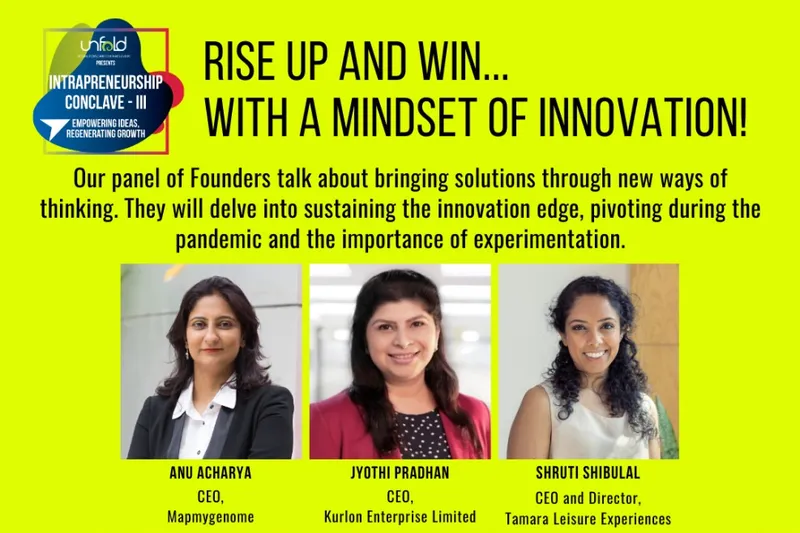
II. Employee innovations during the pandemic
Online and open communication platforms served as a lifeline for resilience, productivity and risk management during the pandemic.
“We received tons of ideas from employees during the pandemic,” Rishi of MetLife recalls. Many were also implemented, such as a thin-code automation tool that could track online activities. “This utility was rolled out in just three days, and offered many customisation features,” he adds.
Ideas and solutions for remote connectivity were also implemented, such as satellite access for those working from home towns in rural areas or small towns in India. “Where fibre was not available, we used satellite boxes from operators like Airtel,” Rishi explains.
This is particularly useful in hilly areas, he adds. Rishi is particularly familiar with these issues from his experience as a motorsports enthusiast, and as part of the team organising races and rallies in the Himalayas.
“We made sure that all employees had not just primary access but also a secondary internet connection,” he adds.
At Tamara Leisure Experiences, the immediate priority during lockdown, after health and safety precautions, was cost rationalisation. “We needed to cut back on as many fixed costs as possible to sustain our workforce through the pandemic-related downturn,” Shruti recalls.
“As a result of our open communication with them, the staff brought fresh and important ideas to the table which helped us navigate challenging operational changes,” she explains. This included relooking at all purchases and contracts to ensure optimisation, and using in-house over external capabilities wherever possible.
The company also conducted immense training, particularly in regard to the Raksha Initiative, the safety protocol that was developed within Tamara. It was aimed at preventing the spread of COVID amongst guests and employees.
“Feedback is collected often. There is enthusiasm around taking that constructive criticism and applying it to everything from our operations, service and work culture,” Shruti says.
At WPP, there was a rise in requests from employees to do initiatives focussing on mental health. “We knew this was an important topic that needed attention given that working from home also led to stress, overwork, and a sense of loss of work-life balance,” Apoorva recalls.
The company conducted many workshops and safe-room dialogues to give people an opportunity to discuss their issues openly. “We also managed to run a virtual concert for all our staff where we invited a well-known and celebrated Bollywood music director duo to perform for 5,000 of our staff,” she adds.
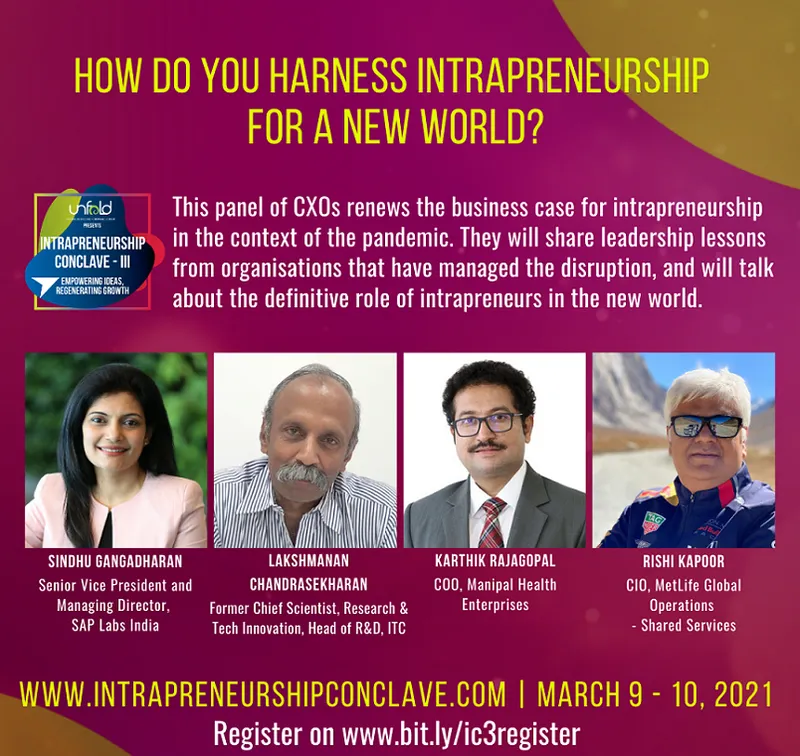
III. Sustaining innovations beyond the pandemic
WPP has leveraged the power of mentorship and networks for growth and innovation. “Over the past year, we have recognised the power of collaboration and diversity in all that we do for our people, clients and communities. This has been truly reflected in the quality of output and the way teams have collaborated along with so many new ideas taking off during this time,” Apoorva explains.
WPP created a ‘green team’ in October 2020 that comprised of 20 diverse individuals from different agencies within the network. “They focus on driving sustainability as a mainstream approach in all the work we do, and we are looking to create our sustainability charter in India,” Apoorva adds.
The company also formed the mentoring group called WPP Stella within its network. “We’ve managed to bring 150 of our women across different agencies for this group. The aim is to enable our young high-potential women to leverage and learn from the experiences of senior women leaders, provide training opportunities, and of course sharing the experiences of the best of male and female leaders to inspire all,” Apoorva says.
Rishi of MetLife says he now organises all-hands meets more often, as well as huddles. “Productivity has increased during the pandemic. People felt more empowered,” he adds.
From infrastructure to engagement, the momentum has been sustained. But the decision about how much work is to be moved back to office mode will have to be jointly considered by managers and employees, Rishi explains.

Shruti of Tamara Leisure Experiences says her company will continue focusing on tech and system driven solutions to optimise internal operations. “They are not only effective but also inherently facilitate skill building, which we can use to create more nimble teams and more competitive service offerings,” she explains.
Technology has been an important part of making the company’s operations both innovative and resilient. “Very early on, we embraced tech-enabled facilities to improve communication across the organisation,” she says.
This eased the company’s ability to share knowledge, train and even motivate staff across levels. “It was essential to helping us adjust to pandemic-related restrictions efficiently,” Shruti adds.
Her team created an app to collate grievances and employee feedback. “We noticed that people would not go out of their way to communicate their needs or gaps that they are dealing with on a daily basis,” she recalls.
The app, called Share, allows managers to collect information quickly and then delegate teams of Tamarites to address those concerns. “We also have robust quality systems and processes that encourage frontline staff to put forward improvement initiatives which they believe can make tangible impacts and help them achieve their goals,” Shruti explains.
These systems have been further developed and refined through the pandemic in order to bring more transparency and accountability at Tamara Leisure Experiences.
“Culturally, this system of open communication and human capital growth has brought in a great deal of dynamism to the organisation. It has strengthened us in fundamental ways that will continue to be beneficial in the long term,” Shruti emphasises.
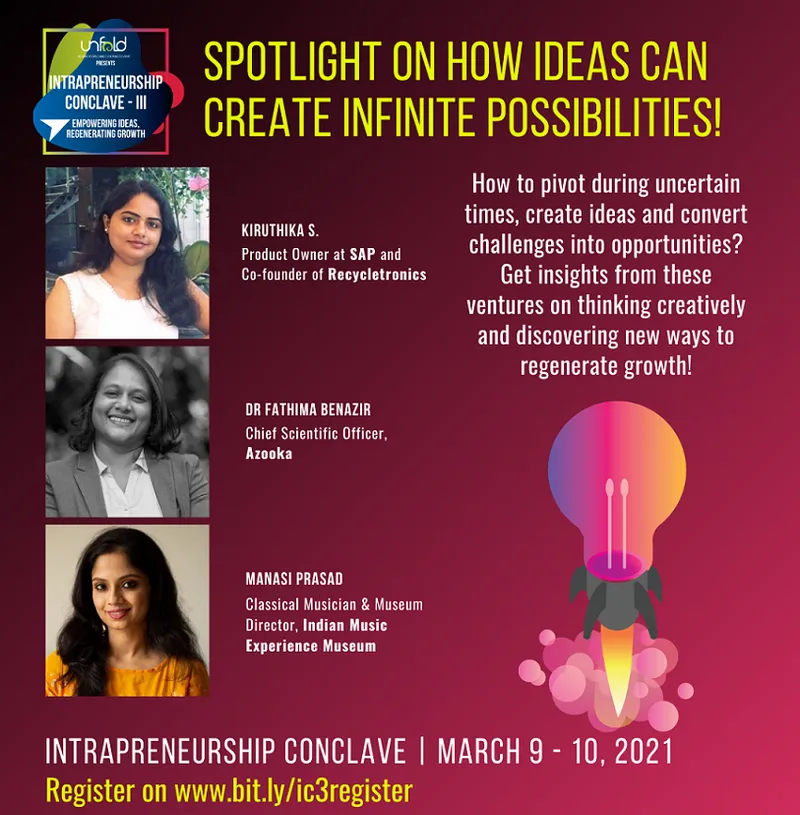
IV. Tips for an innovative culture
Based on these hard-earned lessons, the three speakers also offer a range of tips to organisational leaders on how to sustain a culture of innovation.
Shruti of Tamara Leisure Experiences advises leaders to invest in and stand by their teams in order to support the innovation pipeline. “As a leader, my top three priorities are to openly communicate with my team often, to invest in making my team agile (both in skill and structure) and to lead with purpose,” she emphasises.
It is important to let people know that their own voice and perspective are essential to the organisation. “It also helps one, as a leader, discern whether your employees define and understand the company’s values in the same way that you do,” Shruti adds.
“Speaking openly with our teams and investing in their professional as well as personal growth increases the volume and quality of employee-led ideas,” she explains.
Leading with purpose ensures that the company’s core values are consistently translated into practice. “This means that any debate around innovative ideas both encourages diverse perspectives and also stems from a unified understanding of who we are as an organisation,” Shruti says.
“Supporting and standing by your team are essential to maintaining a flow of fresh ideas and also encouraging a healthy form of debate that fine tunes them into actionable policies,” she urges.
Apoorva of WPP advises a focus on diversity, communication and sharing. “Promote diversity in the organisation consciously – diversity of thoughts, skills, gender and experience,” she suggests.
“Create forums and avenues to ensure the employees are connected to the leadership. This gives them an opportunity to share their views and opinions candidly and ensure there is a cadence to this to build credibility,” Apoorva explains.
“Build a culture where ideas are created and shared organically, as opposed to making it reward-driven,” she adds.

Rishi of MetLife offers three tips for business leaders to sustain the innovation edge.
Cut down on bureaucracy. Make information flows and decisions faster and more nimble.
Provide people with a sandbox for their ideas. Don’t shoot down the ideas, but give them a free hand to experiment and learn from successes and failures.
Ensure flexibility. Don’t be too stiff about bringing employees back to the office when things improve. Address the human side, and let them learn new things or take on new responsibilities.
Rishi himself is developing a model of personal leadership based on a dynamic balance between personal, work, family and social spheres. “These evolve over time, as seen during the pandemic when collective survival became a priority. But it is only with a well-developed self that one can give one’s best to other spheres,” Rishi signs off.

